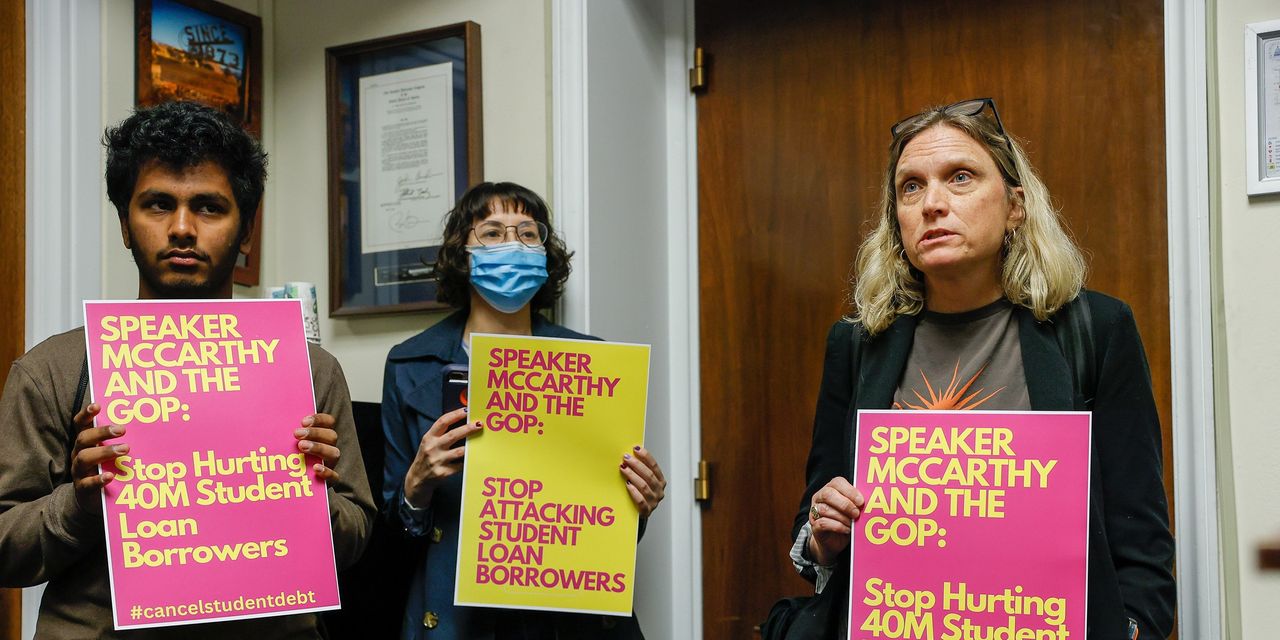A conservative-leaning nonprofit is asking a federal court to stop the student loan payment pause immediately.
The Mackinac Center for Public Policy has asked a federal judge to issue a nationwide preliminary injunction to halt the payment pause. The motion comes about a month after the organization, which describes itself as an organization advancing free market and limited government principles, sued the Department of Education in a Michigan federal court challenging the payment freeze.
If granted, the plaintiffs’ request would block the Biden administration from continuing the pause until the litigation is resolved.
The moratorium on federal student loan payments interest and collections has been in place since March 2020. The Biden administration has said payments will resume later this year. But over the past several months, various stakeholders have been ramping up their formal opposition to the pause.
SoFi
SOFI,
a fintech company that refinances student loans, also sued the Department of Education over its most recent extension of the pause, calling it “unlawful on multiple grounds.” Still, the company stopped short of asking a court to stop the moratorium while the litigation works its way through the legal system. Congressional Republicans included a measure ending the freeze in their debt ceiling bill, which passed the House of Representatives in April, and a congressional committee moved a separate resolution forward Wednesday that, if passed, would end the freeze.
The payment pause has been extended eight times over two presidential administrations. This latest extension is tied to litigation surrounding the Biden administration’s plan to cancel up to $20,000 in student debt for a wide swath of borrowers. President Joe Biden said in November that payments would resume 60 days after the Supreme Court makes a decision on the case or 60 days after June 30, 2023, whichever comes first.
The Mackinac Center case rests on some of the same arguments as those made in suits challenging the debt cancellation plan. They say the HEROES Act, a 2003 law that allows the Secretary of Education to take steps to ensure borrowers won’t be worse off in a national emergency, doesn’t authorize the pause. Opponents to the debt-relief plan have said the Biden administration overreached in its executive authority in authorizing it under the same law.
In the debt-relief cases, the Supreme Court justices are evaluating those questions of executive overreach and whether parties challenging the plan have standing, or the right to sue. The Mackinac Center’s case will likely also raise questions about the organization’s standing. In order to have the right to sue, a party needs to be directly harmed by a policy and a court needs to be able to redress the harm.
The Mackinac Center argued it’s injured by the pause because it makes the organization a less competitive employer. The organization’s employees are eligible for the Public Service Loan Forgiveness program, the attorneys write in the motion. That initiative allows borrowers with federal student loans who work in government or certain nonprofits to have their debt canceled after 10 years of payment.
“By offering PSLF incentives to student-loan borrowers in the job market, Congress purposefully gave public-service employers like Plaintiff a competitive advantage over private-sector employers in recruiting and retaining educated workers,” the brief states. “Government actions that take away these PSLF subsidies necessarily injure public-service employers like Plaintiff by increasing their labor costs and undermining recruitment. That is precisely what the Moratorium has done and continues to do.”
The payment freeze does make pursuing PSLF more attractive in some ways. The months when the pause has been in place count towards the 120 months of student loan payments borrowers need to qualify for forgiveness under the program, even though borrowers haven’t been required to pay during this period.
The then-attorney general of Arizona made a similar claim last year, arguing that his office had standing to sue over the debt relief plan in part because they employ attorneys eligible for PSLF. It’s unclear how the court would have viewed that argument because when Kristin Hayes, a Democrat, became attorney general earlier this year, she dropped the suit.
Read the full article here





